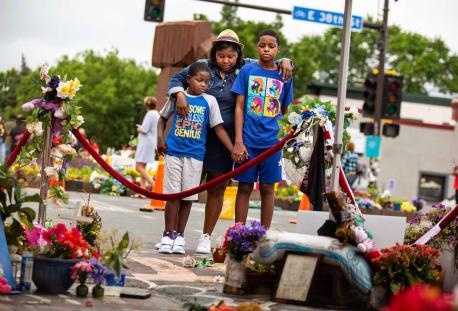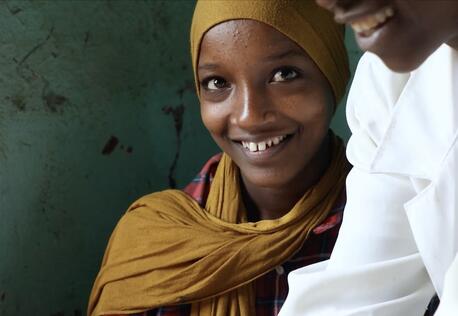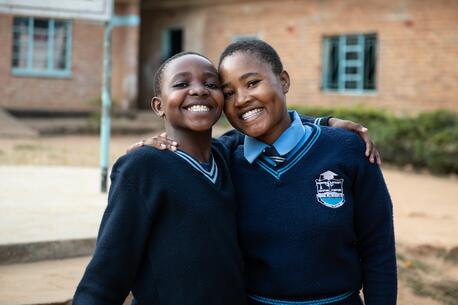
George Floyd’s Legacy Calls for Police Reforms That Include Children
On the first anniversary of George Floyd’s death, supporters of child- and youth-focused reforms envision law enforcement that will serve everyone.
Like few events in recent memory, the killing of George Floyd by a Minneapolis police officer a year ago highlighted the need to rethink how law enforcement interacts with the Black community in our country, and more broadly how it carries out its mission to serve all communities.
One outcome has been a loud and sustained call for significant reform in police practices and the use of force. Among those efforts is legislation moving its way through the U.S. Congress — the George Floyd Justice in Policing Act. President Biden and Vice President Harris have called for its passage.
At UNICEF, our interest is always in the rights and well-being of children. Around the world, UNICEF routinely engages and works alongside police and law enforcement officials as part of its child protection programs. In the U.S., we are encouraged that calls for police reform recognize the importance of improving and strengthening the way law enforcement positively interacts with young people. For instance, the George Floyd Justice in Policing Act calls out three specific areas of focus in dealings with children and youth.
The first is to promote best practices for law enforcement interaction and communication with children and youth. Section 114 of the proposed law would provide grants to fund pilot training programs for law enforcement officers to improve their interaction and communication with young people. One provision of Section 364 requires the Attorney General to issue guidance on how a federal law enforcement officer can use the least amount of force when interacting with children and youth.
A second measure focuses on strengthening standards for youth justice. Section 113 calls for the development of uniform standards for accreditation of law enforcement agencies. One of its provisions is directly related to standards for youth justice. Also, section 114 encourages the use of evidence-based crime prevention measures and alternatives to school-based arrests.
A third area of focus is school safety, including the use of school-wide positive behavioral interventions and support efforts.
The inclusion of these child- and youth-focused reforms is essential to any effort to improve police practice. How law enforcement officials — whether local or federal police, migration and border officials or others — interact with children has a direct impact on their physical safety and mental health and can set a positive — or negative — tone that can last throughout their lifetimes.
Top photo: Alicia D. Smith and her two boys Walter, 11, (right) and Alonzo, 7, reflect at the site where Minneapolis police officer Derek Chauvin killed George Floyd in Minneapolis in 2020. © Jason Armond / Los Angeles Times via Getty Images
HOW TO HELP
There are many ways to make a difference
War, famine, poverty, natural disasters — threats to the world's children keep coming. But UNICEF won't stop working to keep children healthy and safe.
UNICEF works in over 190 countries and territories — more places than any other children's organization. UNICEF has the world's largest humanitarian warehouse and, when disaster strikes, can get supplies almost anywhere within 72 hours. Constantly innovating, always advocating for a better world for children, UNICEF works to ensure that every child can grow up healthy, educated, protected and respected.
Would you like to help give all children the opportunity to reach their full potential? There are many ways to get involved.





